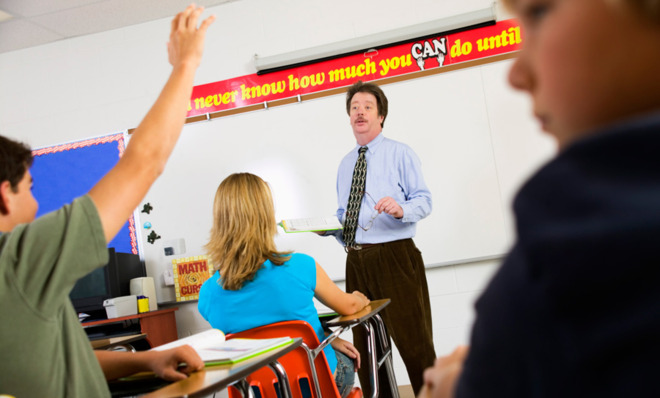If you want kids to fail, stop making failure so horrible
Children can't be expected to take risks when the societal consequences are so crushing

A free daily email with the biggest news stories of the day – and the best features from TheWeek.com
You are now subscribed
Your newsletter sign-up was successful
It is important that people take risks. Innovation depends on it.
That's the generic sentiment that sloshes around the cult of entrepreneurship and small business, a cult that has managed to seep into so much of our mainstream economic discourse. According to this sentiment, we need people out there doing novel things that will mostly fail but occasionally lead to significant breakthroughs that generate new goods, services, and processes that improve our lives.
In this vein, Megan McArdle has been pushing the importance of failure, and bemoaning cultural shifts away from taking failure-prone risks. In her estimation, children are being drilled into total conformity from a young age, steered by overly concerned parents toward high-success paths that leave little room for creative deviations from the norm. In the long run, McArdle suggests, this is bad for society because it will reduce innovation and the social benefits that flow from it.
The Week
Escape your echo chamber. Get the facts behind the news, plus analysis from multiple perspectives.

Sign up for The Week's Free Newsletters
From our morning news briefing to a weekly Good News Newsletter, get the best of The Week delivered directly to your inbox.
From our morning news briefing to a weekly Good News Newsletter, get the best of The Week delivered directly to your inbox.
But while McArdle somewhat glibly celebrates failure, the reality of deep failure in America is stark. Unlike elsewhere in the developed world, being at or near the bottom of American society entails extraordinary misery. Poverty, food insecurity, homelessness, instability, and a general lack of a livable social floor means that the consequences of truly failing in the U.S. are rather horrific.
Curiously, the problem of failure's harshness gets scarce attention from supposedly risk-loving conservatives. Instead, we are usually treated to lectures about how important it is that we deliver massive rewards to the handful of people who take the failure-prone risk and manage to make it through successfully. Such rewards must be on offer, we are told, to incentivize people to bear such extreme risks.
This policy advice ignores a huge part of the puzzle. To incentivize people to try out a failure-prone innovative path, you can either increase the rewards to doing so or decrease the risks associated with doing so. You can increase the jackpot that winners get, or decrease the misery losers suffer. To the extent that people and parents are reasonably averse to risking the possibility of winding up on the bottom of our society, the solution to the problem of conformist drilling lies in reducing inequality, poverty, and economic insecurity so that the economic bottom is a much more comfortable place to be.
Despite the attractive logic of this pro-innovation argument for egalitarianism, we are often told the exact opposite is true. The most sophisticated version of this argument admits that the relatively egalitarian social democracies of Europe do have respectable levels of economic growth, but insists that it is because they are piggybacking off of the innovation of less egalitarian countries like the U.S. That is, cutthroat capitalism in the U.S. is where the real innovation is, while cuddly capitalism in Scandanavian countries just rides on America's coattails.
A free daily email with the biggest news stories of the day – and the best features from TheWeek.com
As clever as this all sounds, respected indices of competitiveness and innovation do not support it. For instance, as Lane Kenworthy points out, the World Economic Forum's Global Competitiveness Index ranked Sweden and Finland the two most innovative nations from 2012-2013. Innovation is an extremely difficult thing to perfectly measure, but these studies suggest that innovation is indeed compatible with the kind of egalitarian social systems popular in the Nordic countries.
If fear of failure is causing parents and children to cut out socially necessary doses of innovation-generating risk, then we should act to make that fear less potent. Cajoling parents to sacrifice their kids into the maw of poverty for the greater good won't do. Instead, we should construct high economic floors, low inequality, and iron-clad economic security.
-
 The EU’s war on fast fashion
The EU’s war on fast fashionIn the Spotlight Bloc launches investigation into Shein over sale of weapons and ‘childlike’ sex dolls, alongside efforts to tax e-commerce giants and combat textile waste
-
 How to Get to Heaven from Belfast: a ‘highly entertaining ride’
How to Get to Heaven from Belfast: a ‘highly entertaining ride’The Week Recommends Mystery-comedy from the creator of Derry Girls should be ‘your new binge-watch’
-
 The 8 best TV shows of the 1960s
The 8 best TV shows of the 1960sThe standout shows of this decade take viewers from outer space to the Wild West